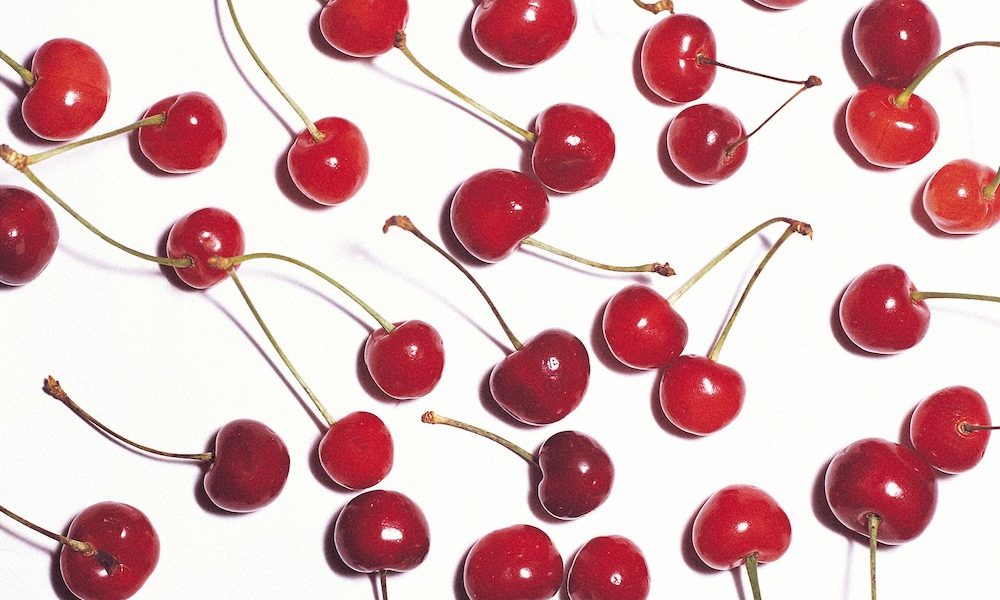Emerging research shows tart cherries may help athletes better repair their bodies from training. Take a closer look at the science and how to reap its full benefits.
BY: MARITA RADLOFF, MS, RDN, CSSD, LD
As an athlete, inflammation is something that your body deals with on a consistent basis. It’s your body’s way of beginning the healing process in response to stress, either from things like emotional stress or a tough workout.
The inflammation response is also what builds muscles but chronic inflammation from too many hours in the gym or not getting enough rest days in between hard workouts can build up inflammation, causing damage to your cells and DNA.
If you find yourself constantly exhausted, injured, or incredibly sore despite the time spent on a foam roller, you may need to incorporate more anti-inflammatory foods into your diet.
And one anti-inflammatory food that’s been found to be especially helpful for athletes is tart cherries.
Tart cherries are loaded with anthocyanins, which have been shown to improve brain cell function, reduce inflammation, and even slow aging. Anthocyanins have also been shown to benefit athletes, in particular, providing pain relief and reducing muscle damage.
Let’s take a closer look.
Inflammation and Pain Relief
When inflammation levels are increased in the body, this leads to an increased level of inflammatory stress signals, such as nitric oxide, tumor necrosis factor-alpha (TNF-α), and cyclooxygenase-2 (COX-2).
These sound scary and complicated because they can be; TNF-α may be involved in the development of inflammatory bowel disease, rheumatoid arthritis, and multiple sclerosis. It also down-regulates your immune system, meaning you can’t recover from those workouts as quickly, which can lead to injury or illness. So if you find you have a nagging cold or injury during your peak training season, your inflammation levels may be high.
COX-2 is an enzyme that is inhibited by NSAIDs, which are anti-inflammatory drugs such as aspirin or ibuprofen. NSAIDs relieve pain by decreasing the activity of COX-2 since it is the main enzyme in inflammation. When you inhibit COX-2, such as through taking ibuprofen, this relieves pain.
But long-term use of NSAIDs can cause stomach damage, kidney failure, and increase your risk of cardiovascular disease. That’s why finding an alternative to aspirin or ibuprofen is important if you struggle with chronic pain or an inflammatory injury. This is where proper sports nutrition plays an important role.
Tart cherries have also been shown to inhibit COX-2 enzymes, meaning you can skip that ibuprofen after a hard workout and eat or drink your way to less pain. Studies have also been honing in on what conditions would benefit from tart cherry consumption.
Osteoarthritis, known as the “wear and tear” arthritis, is the most common type of arthritis. Athletes are especially susceptible to developing osteoarthritis, especially for high-impact workouts, like running, that stress the joints and cause cartilage breakdown.
One study found osteoarthritis pain was reduced by more than 20% when participants had a daily dose of tart cherries. Another study found that women with inflammatory osteoarthritis drinking tart cherry juice twice daily for three weeks had significant reductions in inflammation markers, especially in women who had very high levels of inflammation.
Tart Cherries and Muscle Damage
Can tart cherries actually help you bounce back faster from a long run? Researchers set out to assess whether tart cherries can reduce muscle damage by studying runners in the Hood to Coast relay in Oregon.
The runners drank cherry juice or a placebo cherry drink twice a day for seven days prior to the race and twice a day on race day. They reported their pain levels after the race and found that runners who had the tart cherry juice had less muscle pain than those who had the placebo.
In another study with 20 marathon runners, the muscle damage following a marathon was measured after half of the participants had consumed either tart cherry juice or a placebo leading up to the race and after. Inflammation was significantly lower in those who drank the tart cherry juice, and their isometric strength was recovered significantly faster. Another study found that symptoms of muscle damage after strength training were only 4% compared to 22% in those who had tart cherry juice.
While more research is needed to determine how tart cherries can help endurance athletes, the studies are promising.
Consider adding this powerhouse fruit to your sports nutrition plan, which can help reduce inflammation, muscle soreness, and pain. For people with arthritis or recurring injuries, tart cherry juice might be especially helpful.
Cherries are also a good source of melatonin, which helps regulate your internal clock and help you get better sleep! In fact, one study found that including a tart cherry concentrate beverage increased time in bed, total sleep time, and sleep efficiency – all benefits anyone can get behind!
Tart cherry juice is becoming more mainstream and easier to find, but be careful about what variety you include so that you actually see results. Try a tart cherry concentrate instead of a tart cherry juice drink as some ready-made drinks contain more apple juice than cherries.
Using a tart cherry concentrate ensures you are getting the full benefits of the tart cherries instead of just juice. Including tart cherry juice concentrate after a harder workout, such as your long weekend run, will help you bounce back ready for Monday’s workout.
Adapted from the original post.
HEADER IMAGE: BOGDAN DREAVA
Marita Radloff, MS, RDN, CSSD, LD is a Board Certified Sports Dietitian teaching athletes how to fuel for their sport without restrictive diets. Marita believes everyone is an athlete, no matter the level of fitness. She strives to teach athletes how to fuel for performance, recovery, and endurance while still enjoying the foods they love without the confines of a diet. You can find and connect with her at Marita Radloff Nutrition.

